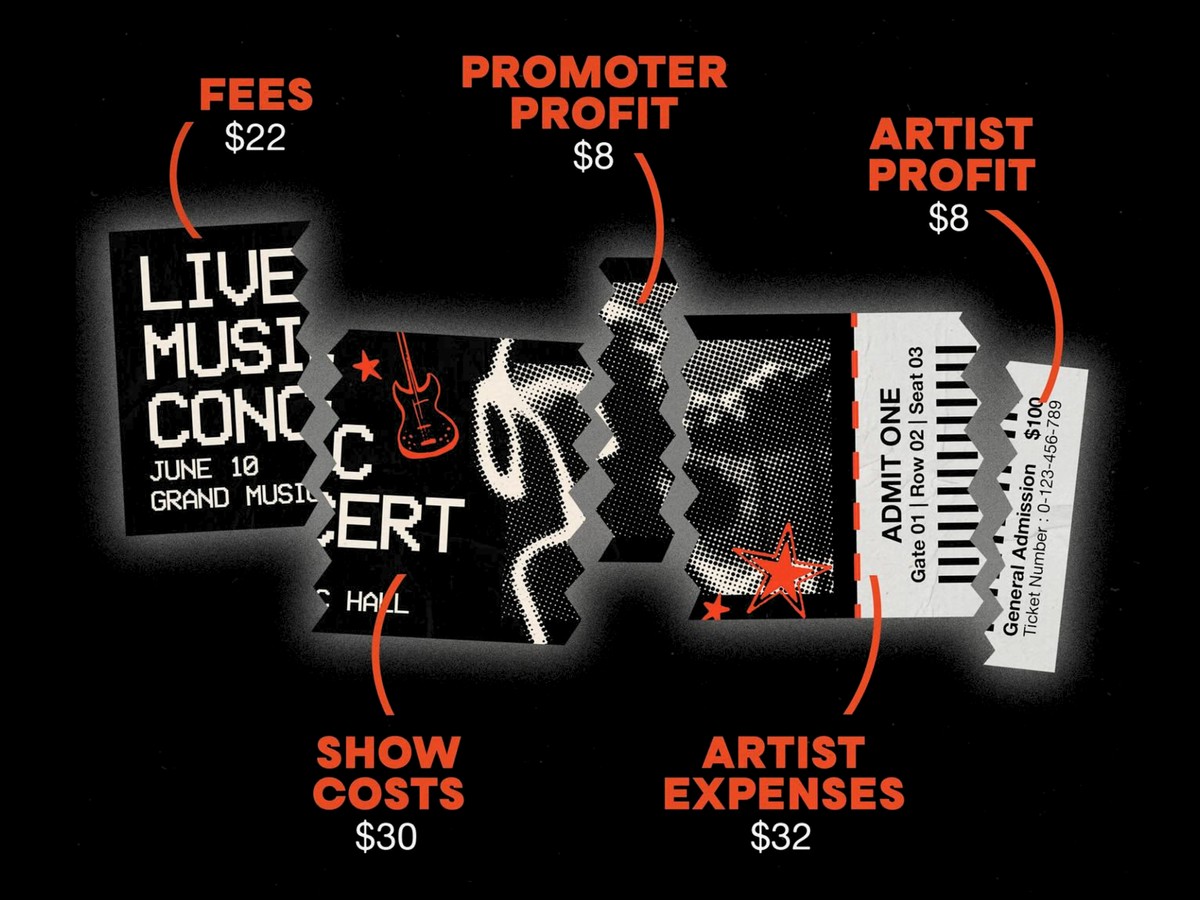
A new report from the National Independent Talent Organization (NITO) reveals a stark reality about concert economics - artists typically earn just $8 in profit from a $100 concert ticket.
The trade group's analysis, based on expense sheets from working musicians, breaks down where the money actually goes. Of the $100 ticket price, approximately $22 goes to various fees split between venues, promoters, and Live Nation-Ticketmaster. Venue costs consume another $30, covering staff and operational expenses. Show producers take roughly $8.
The remaining amount gets quickly eaten up by the artist's own extensive touring costs. These expenses include transportation, hotel accommodations, crew salaries, and payments to management teams. Real expense data shared by NITO shows how quickly these costs add up. In one example, an artist earning $3,000 per show had to pay $1,100 just for management and agent fees, before even covering travel expenses.
Another case study revealed that from $115,000 earned during a month of touring, over $20,000 went to management fees, $15,000 to crew salaries, and $13,000 for vehicle rental alone.
The financial squeeze is particularly challenging for independent artists, many of whom now view touring as economically unfeasible. While some costs represent fair compensation for necessary services, critics point to the substantial fees charged by industry giants like Live Nation-Ticketmaster as a key factor driving up ticket prices while reducing artist profits.
Industry experts suggest that merchandise sales at concerts remain one of the best ways for fans to directly support touring artists, though some venues have begun taking a percentage of these sales as well.
The findings highlight the complex economics behind concert ticket pricing and help explain why many working musicians struggle to maintain sustainable touring careers despite seemingly high ticket prices.